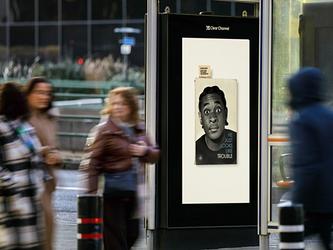Most black Britons change themselves to fit in at work, study on black British identity finds

The project – a partnership between the University of Cambridge, The Voice newspaper and I-Cubed Consultancy, with marketing support from M&C Saatchi London – surveyed over 11,000 black British people about 16 topics including ‘Britishness’, identity, racism, health and the media.
Almost all of the study’s participants ( 98%) reported having to compromise who they are or how they express themselves in order to ‘fit in’ in the workplace, and ( 88%) reported that they have experienced racial discrimination at work.
The Black British Voices project combined the quantitative survey with 40 qualitative interviews and eight focus groups. Research partners included the Jamaica National Group and the Black Equity Organisation (BEO).
Examples of how people had changed themselves to fit in include adapting speech or hairstyles, and research participants cited appearance and cultural background as factors influencing lack of promotion or development.
In other findings, fewer than half of respondents ( 49%) reported that they were either ‘definitely’ or ‘somewhat’ proud to be British, with 12% ‘definitely’ proud to be British and 45% either ‘not really’ or ‘not at all proud’.
The majority ( 80%) of respondents believed that racial discrimination was ‘the biggest barrier’ to academic achievement, with 8% having trust in the education system. Another 95% of survey participants believed that black people were not sufficiently represented in history in the national curriculum.
Additionally, 87% of respondents reported that they expect to receive substandard levels of healthcare because of their race, and around three quarters ( 74%) of those surveyed disliked the term ‘BAME’ (Black, Asian and Minority Ethnic).
In other areas studied, more than half of respondents ( 55%) stated that portrayals of black culture in advertising (including TV ad campaigns) were ‘somewhat better’ than they were 10 years ago, while 22% said they were ‘much better’.
Dr Kenny Monrose, lead researcher and Cambridge sociologist, said: “A lot of nonsense is talked about black communities being hard to reach. They’re not hard to reach, they’re easy to ignore. But if there’s 10,000 people speaking, attention needs to be paid. You might not want to agree, but you’ve got to listen to what’s being said.”
Monrose added: “We are mindful that historically black communities have been wary of reports conducted on race, as they attempt to limit or invalidate the reality of their lived experiences. However, the carpet of data captured within this report reliably highlights the chronic level of racial disparities and unequal outcomes that they face on a daily basis.”
The 104-page report is being launched at the House of Commons today ( 28th September).
Lester Holloway, editor, The Voice, said: “This study should be a wake-up call for Britain. We have many fourth-generation black Brits and, as a community, we should be feeling part of this country. Yet the lived experience of racism in every area of life is leading many to not feel British.
“We cannot keep ignoring racial disparities and its impact. There needs to be a national conversation about this, and we need race back on the political agenda, so we can tackle the causes of this disconnect between black Brits and the only country they know.”

We hope you enjoyed this article.
Research Live is published by MRS.
The Market Research Society (MRS) exists to promote and protect the research sector, showcasing how research delivers impact for businesses and government.
Members of MRS enjoy many benefits including tailoured policy guidance, discounts on training and conferences, and access to member-only content.
For example, there's an archive of winning case studies from over a decade of MRS Awards.
Find out more about the benefits of joining MRS here.














0 Comments